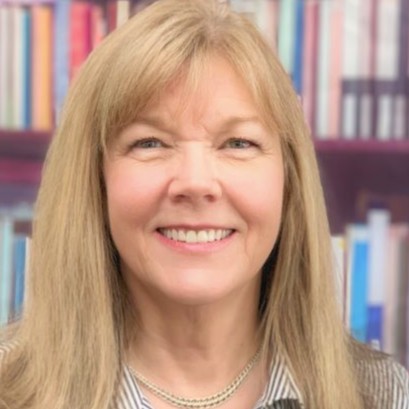Over the past several months, reverse mortgage industry analysts have offered a bit of a warning to the industry. Even though Home Equity Conversion Mortgage (HECM) volume has remained above 4,000 units every month for much of the past year, the amount of HECM-to-HECM refinance transactions — in one estimate totalling as much as 40% of overall industry volume — is unsustainable for much longer, they have said.
To gauge the attitudes of reverse mortgage professionals across the industry, RMD inquired to major lenders and brokers about the state of the business with regards to refinances, and whether or not there is any concern among reverse mortgage business leaders and direct practitioners about the refinance boom currently taking place.
The responses received were enlightening. Many lenders do not want to cut off a source of valuable business particularly in a time where refinances may make sense for many borrowers due to the current rate environment, while some others recognize that a refi boom is not a sustainable path forward for the future of the reverse mortgage industry and its ability to bring new borrowers into the fold.
What refinance business looks like right now
The old saying “a rising tide lifts all ships” is the attitude of several reverse mortgage lenders. While industry leader American Advisors Group (AAG) has seen a noticeable uptick in refinance applications, that is commensurately true of its general application count as well, according to James Mittleman, senior vice president of retail sales at AAG.
“While we have done some rather successful refinance campaigns this year, it hasn’t been our primary focus,” Mittleman tells RMD. “Our overall applications per loan officer is the highest we’ve seen in our company history and that includes higher than normal refinance applications. This trend is the result of older Americans seeing their homes appreciate in value by a significant amount and cashing in on what has become their most valuable asset. And with interest rates remaining low, those who already have a HECM are seizing the opportunity to access additional equity.”
Other lenders are making immediately clear that they recognize the current level of refinance business is not particularly sustainable going forward, but it is also business that should not simply be left on the proverbial table. This is part of the view shared by Patty Wills, national retail sales manager of reverse mortgages at Open Mortgage.
“Our retail field branches have a diversified pool of reverse mortgage loan types and referral partners and sources at Open Mortgage,” Wills tells RMD. “Of course, HECM-to-HECM business remains strong, but we believe, and data shows that this business cannot stay at the current level continuously. Senior staff at Open Mortgage emphasize the continuing need to grow new business. At the same time, we work with the current opportunities to refinance existing HECMs for our customers.”
Other entities specifically aim to broaden the base of new borrowers. San Diego, Calif.-based C2 Reverse Mortgage, a division of C2 Financial Corporation, has a concentration of its reverse mortgage borrowers in high-value properties of the western United States. The company aims to have focus on new borrowers, and does not have a specifically-dedicated refinance program according to C2 Reverse National Manager Scott Harmes.
“We don’t have a call center, we don’t keep track of who has a reverse [and at the] 18 months old [mark], [approach someone] for a refinance,” Harmes tells RMD. We’re getting anecdotal refinance business, but the bulk of our business is in new borrowers.”
However, concern for the industry trend of going for existing borrowers is also not present in Harmes’ mind, he says. While he believes that C2’s average refinance volume is around 20% of its total — half as much as an industry average that is as high as 40% — the effect of the COVID-19 coronavirus pandemic makes clear to the borrowers C2 serves that home equity unlocked through a reverse mortgage is an efficient means of aging in place.
“My perspective is that the unfortunate, tragic pandemic we’ve gone through has really highlighted the reverse as a viable option for a sustainable solution to help people age in place,” Hermes says. “Because at this point, I think most seniors would do anything [to avoid going] into a nursing home or a senior group living situation. Tapping into their home equity with a reverse mortgage is a proven way and a great option for that.”
The importance of referral partners, leveraging diverse marketing mediums
Referral partners for reverse mortgages are more important to proliferating new business than ever before, and many leading reverse mortgage lenders and brokers are keenly aware of that fact. The current trends in the business help to emphasize the importance of maintaining good relationships with partners across the spectrum, from financial planners to real estate agents.
“Open Mortgage encourages our loan officers to constantly be in touch with their pool of referral partners and sources to grow new business,” Patty Wills says. “We offer programs that assist and train our originators on locating, creating and continuing to communicate with new referral partners. It is continuing to build those relationships that will increase business now and in the future. Growing relationships is critical for success moving forward.”
The importance of using a diverse marketing strategy is also key to capturing new borrowers according to Don Currie, president of HighTechLending.
“At HighTechLending, we focus on a healthy mix of new borrowers and existing HECM borrowers,” Currie tells RMD. “New prospects can be found utilizing all the current marketing mediums such as mail, internet, telemarking, TV and social media. The bottom line is to have a foot in both ponds, new and existing reverse borrowers. This will lead to a pool of loans that our investors will continue to generously compensate us producers. This will ultimately benefit our seniors, and that is the end goal.”
For AAG, locating new borrowers has actually become easier. As more and more people age into the eligibility threshold for reverse mortgages, a new degree of technological understanding makes previous educational efforts about the product category less important than they used to be, according to James Mittleman.
“Each year our customer base gets a little bit younger as the Baby Boomer generation becomes eligible for reverse loans,” Mittleman says. “With that, we’re seeing a shift in our customers’ understanding of the products before they contact us. With online resources being more readily available and seniors becoming more technologically savvy, a large percentage of our customers are coming to us with a greater understanding of how the products work, whereas in the past much of our initial interactions were focused on pure education of the products.”
That education brings more diverse use cases, and different kinds of applications of a reverse mortgage loan’s proceeds for new borrowers, Mittleman says. With new qualifying borrowers emerging every year, the indication appears to be that AAG remains confident that new qualifying borrowers each year makes the necessity of relying on existing borrowers less important.







